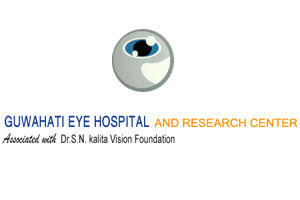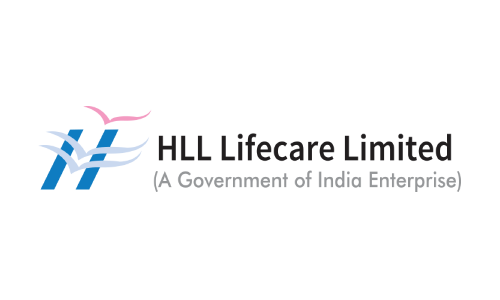











Read More
Embark on a transformative journey with our cutting-edge BBA program, specializing in Business Analytics, crafted in collaboration with the industry powerhouse IBM. From the outset of graduation, students are immersed in a dynamic blend of academic rigor and real-world insights. This integrated program is meticulously designed to not only meet but exceed industry standards, ensuring a seamless transition from academia to the professional landscape. It provides exposure to real-time business case studies, tools for critical problem-solving, predictive analytics, data visualization, and data science for business. With a curriculum curated in partnership with IBM, students benefit not only from theoretical expertise but also from the practical wisdom of industry leaders.
Year wise Course Details
Courses for this semester
This course offers a comprehensive exploration of data analytics tailored for managerial roles, utilizing IBM Cognos Analytics. Students delve into the application of Cognos in finance sectors, mastering report authoring, visualization techniques, and data aggregation principles. Advanced topics include multi-fact queries, dashboard creation, and leveraging IBM Planning Analytics. Additionally, students gain expertise in Excel for data analysis and visualization, culminating in industry-specific case studies, where they tackle real challenges and extract actionable insights using Cognos and Excel tools.
Business Economics is a branch of applied economics that focuses on the practical application of economic theories and principles in decision-making within business organizations. This course provides students with an in-depth understanding of microeconomic and macroeconomic concepts, including demand and supply analysis, production and cost theories, market structures, pricing strategies, national income determination, inflation, and fiscal and monetary policies. By integrating economic reasoning with real-world business scenarios, students will develop analytical skills to assess market trends, optimize resource allocation, and make informed strategic decisions in dynamic economic environments.
The Basics of Accounting course introduces students to fundamental accounting principles, concepts, and procedures essential for recording, summarizing, and interpreting financial transactions. The course covers topics such as the accounting cycle, double-entry bookkeeping, financial statements, ledger and journal entries, bank reconciliation, and basic financial analysis. By learning the foundational principles of accounting, students will develop the skills needed to maintain accurate financial records, analyze business transactions, and understand the financial health of an organization. This course is designed to equip students with practical accounting knowledge applicable in both corporate and entrepreneurial settings.
Human Resource Management (HRM) is a strategic function that focuses on acquiring, developing, and retaining an organization’s workforce. This course provides students with a foundational understanding of key HRM concepts, including recruitment and selection, performance management, training and development, compensation and benefits, employee relations, and HR policies. By integrating theoretical knowledge with practical applications, students will learn how HRM contributes to organizational success, employee satisfaction, and compliance with labor laws. The course equips students with the necessary skills to effectively manage human capital in dynamic business environments.
The Principles of Management course provides a comprehensive understanding of the fundamental concepts, functions, and practices involved in managing organizations effectively. It covers essential management principles, including planning, organizing, leading, and controlling, as well as contemporary management approaches. Students will explore topics such as decision-making, strategic management, leadership styles, motivation, organizational structure, and change management. By integrating theoretical frameworks with real-world case studies, this course equips students with the knowledge and skills to become effective managers and leaders in a dynamic business environment.
The Quantitative Techniques course introduces students to the mathematical and statistical tools used in business decision-making and problem-solving. It covers fundamental quantitative methods such as linear programming, probability theory, decision analysis, statistical inference, forecasting techniques, and optimization models. The course emphasizes the practical application of quantitative techniques in managerial decision-making, helping students develop analytical skills to solve real-world business problems efficiently. By the end of the course, students will be able to apply data-driven approaches to improve strategic planning, resource allocation, and operational efficiency.
Courses for this semester
Organisational Behaviour (OB) is a multidisciplinary field that explores how individuals, groups, and structures impact behaviour within organizations. This course provides students with a comprehensive understanding of key OB concepts, including motivation, leadership, group dynamics, decision-making, conflict resolution, organizational culture, and change management. By analyzing real-world case studies and theoretical frameworks, students will develop critical thinking and problem-solving skills applicable to diverse workplace settings. The course emphasizes the role of psychological and sociological factors in shaping workplace interactions and performance, equipping students with the knowledge to navigate and influence organizational dynamics effectively
The Business Environment course provides students with a comprehensive understanding of the internal and external factors that influence business operations and decision-making. It covers key aspects such as economic, political, legal, social, technological, and global environments, along with their impact on business strategies. Students will learn how businesses adapt to changing market conditions, regulatory frameworks, and global competition. The course emphasizes the importance of ethical business practices and corporate social responsibility (CSR) in a dynamic business landscape.
The Financial Management course provides students with a fundamental understanding of financial principles, tools, and techniques essential for effective decision-making in organizations. It covers key areas such as financial planning, capital budgeting, risk management, working capital management, cost of capital, and financial statement analysis. The course emphasizes the role of financial management in optimizing resources, maximizing shareholder value, and ensuring the financial sustainability of a business. Students will develop analytical and problem-solving skills to make informed financial decisions in dynamic business environments.
The Marketing Management course provides students with a comprehensive understanding of marketing principles, strategies, and techniques essential for building strong customer relationships and driving business growth. It covers key topics such as market segmentation, consumer behavior, product positioning, branding, pricing strategies, distribution channels, and digital marketing. The course integrates theoretical concepts with real-world case studies, enabling students to develop strategic marketing plans, analyze competitive environments, and apply marketing analytics for data-driven decision-making.
Courses for this semester
The Business Ethics & Corporate Governance course explores the principles and practices of ethical decision-making in business and the role of corporate governance in ensuring transparency, accountability, and ethical behavior within organizations. The course covers topics such as ethical theories, corporate social responsibility (CSR), stakeholder management, regulatory frameworks, and governance structures. Students will learn to critically assess ethical dilemmas in business, understand the importance of corporate governance mechanisms, and develop strategies for promoting ethical practices and corporate integrity in diverse business environments.
The Production Management course focuses on the planning, coordination, and control of the production process within an organization. It covers the strategies and techniques involved in managing production operations efficiently and effectively to deliver high-quality products at the right time and cost. Topics include production planning, inventory management, quality control, supply chain management, production systems, process design, and capacity planning. The course equips students with the necessary skills to optimize production processes, manage resources efficiently, and apply modern techniques to improve overall productivity in manufacturing and service organizations.
The Cost and Management Accounting course focuses on the techniques and principles used to analyze and control costs within an organization. It provides students with the tools to make informed business decisions by understanding cost structures, budgeting, and performance evaluation. The course covers topics such as cost behavior, cost allocation, cost-volume-profit analysis, budgeting, standard costing, and variance analysis. Students will learn how to use cost data to improve decision-making, enhance profitability, and evaluate the financial performance of a business. This course is essential for those pursuing careers in accounting, finance, and business management.
The Advertising and Sales Promotion course explores the strategies, tools, and techniques used to promote products and services through advertising and sales promotions. It covers various aspects of advertising, including planning, creating, and evaluating advertising campaigns, as well as the role of sales promotions in enhancing short-term sales. The course also addresses the integration of digital marketing, social media, and influencer marketing into traditional advertising and sales promotion strategies. Students will gain the skills to design effective advertising campaigns, understand consumer behavior, and evaluate the impact of promotional efforts on sales and brand equity.
The Marketing Principles and Practices course provides students with a strong foundation in the fundamental concepts, strategies, and tactics used in marketing. The course covers key aspects of marketing, such as understanding customer needs, market segmentation, targeting, positioning, product development, pricing strategies, distribution channels, and integrated marketing communication. Through case studies, practical examples, and interactive discussions, students will learn how to apply marketing concepts to real-world situations and develop effective marketing plans that drive customer satisfaction and business growth.
The Manpower Planning and Development course focuses on the strategic management of an organization's human resources to ensure the right people are in the right roles at the right time. It covers key aspects of workforce planning, recruitment, selection, training, development, performance management, and succession planning. The course highlights the importance of aligning human resource strategies with organizational goals and creating a workforce capable of adapting to changing business environments. Through practical case studies, students will develop the skills to plan, develop, and manage human capital effectively, ensuring sustainable growth and organizational success.
The Overview of Indian Financial System course provides a comprehensive understanding of the structure, components, and functioning of the financial system in India. It covers various elements such as financial markets, financial institutions, instruments, and regulators that facilitate the flow of funds in the economy. The course emphasizes the role of the Reserve Bank of India (RBI), Securities and Exchange Board of India (SEBI), and other regulatory bodies in maintaining the stability and integrity of the financial system. Students will also learn about key financial products, investment vehicles, and the importance of financial inclusion in India’s economic development.
The Principles and Practices of Banking and Insurance course provides students with a solid understanding of the banking and insurance sectors, their functions, operations, and regulatory frameworks. It covers essential concepts such as the role of banks in the economy, types of banking services, financial products, risk management practices in insurance, and the legal and regulatory environment governing both sectors. Through case studies and practical examples, students will learn how to navigate the challenges and opportunities in banking and insurance, and understand their significance in the broader economic landscape.
The Fundamentals of Retailing course introduces students to the basic principles and practices involved in the retail industry. It covers the various retail formats, the retail environment, consumer behavior, retail marketing strategies, store management, and the role of technology in modern retailing. The course emphasizes the importance of understanding the supply chain, pricing, visual merchandising, customer service, and managing customer relationships to enhance the overall retail experience. Through case studies and real-world examples, students will gain insights into the dynamics of retailing, with a focus on current trends like e-commerce and omni-channel retail.
The Basics of Healthcare Management course provides an introduction to the fundamental concepts and practices of managing healthcare organizations. It covers the key elements of healthcare delivery, including the roles and responsibilities of healthcare managers, healthcare policies, ethics, patient care, financial management, human resource management, and quality assurance in healthcare settings. The course also focuses on the challenges and opportunities faced by healthcare managers in navigating an ever-evolving healthcare landscape, including advancements in technology, regulatory requirements, and the need for efficient and effective healthcare delivery.
Courses for this semester
The Business Laws course introduces students to the legal framework governing business operations and transactions. It covers the fundamental principles of business law, including contract law, company law, intellectual property rights, labor laws, and the legal aspects of sales, marketing, and consumer protection. The course emphasizes understanding the legal environment in which businesses operate, equipping students with the knowledge necessary to navigate the complexities of business regulations, compliance, and dispute resolution. Through case studies and practical examples, students will learn to identify legal issues in business practices and develop skills to manage legal risks effectively.
The Human Resource Development (HRD) course focuses on the strategic role of human resources in fostering organizational growth and individual development. It explores various HRD practices such as training, development, performance management, career planning, and employee empowerment. The course emphasizes the need to align HRD strategies with organizational goals, enhance workforce capabilities, and build a culture of continuous learning and development. It also covers the role of HRD professionals in fostering leadership, organizational change, and employee engagement. By applying practical HRD techniques and frameworks, students will gain the skills needed to drive talent development and improve overall organizational effectiveness.
The Financial Institutions and Markets course provides an in-depth understanding of the structure, function, and operation of financial institutions and markets in both domestic and global contexts. The course covers a wide range of topics including the role of banks, non-banking financial companies (NBFCs), insurance companies, mutual funds, and other financial intermediaries. It also explores various financial markets such as money markets, capital markets, and foreign exchange markets, along with the key instruments traded in these markets. The course emphasizes the dynamics of financial markets, regulatory frameworks, and the economic role of financial institutions in promoting economic growth and stability.
The Principles of Advertising and Selling course provides students with a comprehensive understanding of the core principles and strategies behind effective advertising and selling practices. The course covers the key aspects of creating impactful advertisements, designing persuasive selling techniques, and understanding the interplay between advertising and sales in driving customer behavior and achieving business goals. Topics include the psychology of consumer behavior, advertising mediums (TV, print, digital, etc.), branding, sales strategies, and the measurement of advertising and sales effectiveness. Through case studies and real-world applications, students will learn how to design and execute successful advertising campaigns and selling strategies that resonate with target audiences.
The Banking Services and Products course provides an in-depth understanding of the diverse range of services and products offered by banks and financial institutions. The course covers the key types of banking services such as savings and checking accounts, loans, mortgages, credit facilities, and investment products. Students will learn about the mechanisms of retail and corporate banking, along with emerging trends in digital banking, mobile payments, and online banking services. The course also explores the regulatory environment governing the banking sector and the challenges faced by banks in serving customers while ensuring financial stability and growth.
The Retail & Merchandising Operations course is designed to provide students with an understanding of the principles, strategies, and best practices involved in retail management and merchandising. This course covers key topics such as retail store operations, inventory management, product assortment, visual merchandising, pricing strategies, and supply chain management. Students will gain insights into how to enhance customer experience, optimize store layouts, and manage effective merchandising strategies to drive sales. Additionally, the course delves into the impact of technology on retail operations, the rise of e-commerce, and the integration of online and offline retail strategies.
The Compensation Management course provides a comprehensive understanding of the principles, practices, and strategies involved in designing and managing compensation systems within organizations. The course explores the various components of compensation, including wages, salaries, bonuses, incentives, benefits, and non-financial rewards, as well as the factors that influence compensation decisions. Students will learn about compensation planning, internal and external equity, legal and regulatory considerations, and performance-based compensation. The course also delves into the role of compensation in employee motivation, retention, and organizational competitiveness.
The Financial Services course provides students with an in-depth understanding of the various financial services offered by banks, financial institutions, insurance companies, and other intermediaries. The course explores essential financial products such as loans, credit cards, insurance, mutual funds, wealth management services, and retirement planning. It also covers topics like risk management, investment products, and the role of regulatory bodies in overseeing the financial services industry. The course further highlights the trends and challenges in the financial services sector, including the rise of fintech, digital transformation, and customer-centric financial solutions.
The Product and Pricing Strategy course provides students with an understanding of how businesses develop, position, and price products to maximize market share and profitability. The course covers essential concepts related to product lifecycle, product differentiation, market segmentation, and competitive analysis. Students will learn how to design effective pricing strategies that reflect product value, target market demands, and competitive positioning. The course also focuses on pricing tactics, including cost-plus pricing, penetration pricing, skimming pricing, and dynamic pricing, while considering external factors like market trends, economic conditions, and consumer behavior.
The Insurance Products course offers an in-depth exploration of the various types of insurance products available to individuals and businesses. This course covers life insurance, health insurance, property and casualty insurance, and other specialized products such as disability insurance, liability insurance, and annuities. Students will gain an understanding of the underlying principles of insurance, risk management, and the role of insurance in financial planning. The course also focuses on the regulatory environment, pricing mechanisms, underwriting processes, and claims management. Additionally, the impact of emerging trends like digital insurance and insurtech on the insurance industry will be discussed.
The Visual Merchandising course provides students with the essential skills and knowledge needed to design and implement visually appealing store layouts, displays, and presentations that enhance the shopping experience and influence consumer behavior. The course covers the principles of effective visual merchandising, including store design, color theory, lighting, signage, and product placement. Students will also explore the relationship between visual merchandising and marketing strategies, learning how to align the visual display with brand identity and customer preferences. Additionally, the course examines the role of digital merchandising, seasonal trends, and the growing influence of e-commerce on traditional retail environments.
The Basics of Epidemiology & Health Economics course introduces students to the fundamental concepts and methods of epidemiology and the economic principles applied to the healthcare sector. The course provides an understanding of the distribution and determinants of health-related conditions in populations, as well as the factors influencing healthcare systems, costs, and policies. Epidemiology will be covered with an emphasis on study designs, disease surveillance, and public health interventions, while health economics will explore topics such as healthcare financing, cost-effectiveness analysis, and the economic implications of health policies. Students will learn how to integrate epidemiological data with economic theory to analyze health outcomes and optimize healthcare resources.
Courses for this semester
The Business Statistics course introduces students to statistical techniques and tools used to analyze data and make informed business decisions. The course covers fundamental concepts of statistics such as descriptive statistics, probability, sampling methods, hypothesis testing, regression analysis, and time series analysis. Emphasis is placed on the application of these techniques to real-world business problems, enabling students to interpret data, understand trends, and derive meaningful insights to guide business strategies. Students will learn how to use statistical software to perform analyses and present results effectively in a business context.
The Industrial Relations course focuses on the dynamics of relationships between employers, employees, and trade unions, along with the role of government in regulating labor markets. The course covers the principles and practices of industrial relations, including labor laws, conflict resolution, negotiation, collective bargaining, and dispute management. It also explores the role of industrial relations in improving productivity, employee satisfaction, and organizational performance. The course aims to equip students with the knowledge to manage and resolve workplace conflicts, understand labor policies, and promote harmonious employer-employee relationships in the context of a globalized economy.
The Financial Instruments course introduces students to the various types of financial instruments used in investment, risk management, and financing activities in the global financial markets. The course covers a wide range of financial instruments, including stocks, bonds, derivatives (such as futures and options), commodities, and structured products. Students will learn about the characteristics, pricing, and trading of these instruments, as well as the regulatory environment that governs their use. The course also examines the role of financial instruments in portfolio management, hedging strategies, and the broader financial system.
The Brand Management course provides students with a comprehensive understanding of the strategies and practices used to build, maintain, and grow strong brands. The course covers key aspects of brand management, including brand identity, positioning, brand equity, and brand communication. Students will explore the processes involved in developing a successful brand strategy, managing brand portfolios, and handling brand crises. The course also focuses on the role of consumer behavior in shaping brand decisions and examines the impact of digital marketing and social media on brand management. Through case studies and real-world examples, students will learn how to create and manage brands that resonate with consumers and create long-term value.
The Technology in Banking & Insurance course focuses on the transformative impact of technology on the banking and insurance sectors. The course explores the role of digital tools, software, and innovations such as mobile banking, blockchain, artificial intelligence (AI), machine learning, and data analytics in revolutionizing financial services. Students will learn about the key technological trends in the banking and insurance industries, including fintech innovations, digital payment systems, robo-advisors, and insurtech. The course also covers regulatory frameworks related to technological advancements, cybersecurity challenges, and how technology is reshaping customer experiences and operational efficiency in these sectors.
The ERP & Retail Applications course introduces students to the concepts and technologies related to Enterprise Resource Planning (ERP) systems and their application in the retail sector. The course covers the essential components of ERP systems, including modules related to finance, supply chain management, inventory management, customer relationship management (CRM), and human resources. Students will learn how ERP systems help integrate various business processes and improve operational efficiency. The course also focuses on how ERP solutions are specifically tailored to address the unique needs of the retail industry, including inventory control, sales tracking, order management, and customer experience. Students will also explore retail-specific applications, such as point-of-sale (POS) systems, e-commerce integration, and data analytics for retail decision-making.
The Hospital Operations Management course focuses on the principles, strategies, and best practices involved in managing the day-to-day operations of a hospital. The course covers key areas such as patient flow management, resource allocation, scheduling, supply chain management, quality improvement, and patient satisfaction. Students will gain insights into the complexities of hospital operations, including managing hospital staff, healthcare facilities, and services while maintaining operational efficiency and delivering high-quality patient care. The course also explores the role of healthcare technologies, financial management, and regulatory requirements in the smooth functioning of hospital operations
The International Human Resource Management (IHRM) course provides students with an in-depth understanding of the strategic management of human resources in a global context. The course covers the challenges and opportunities that arise when managing employees in multinational organizations, addressing cultural differences, legal compliance, and global talent management. Students will explore various aspects of IHRM, including cross-cultural communication, expatriate management, international staffing strategies, and performance management in a global environment. The course also focuses on the integration of global HR strategies with business strategies to enhance organizational effectiveness across borders.
The Risk Management & Insurance course provides a comprehensive understanding of the principles and practices involved in identifying, assessing, and mitigating risks in various business contexts. The course covers the fundamental concepts of risk management, including risk assessment, risk control, and risk financing strategies. It explores how insurance functions as a risk management tool and examines the different types of insurance products, including life, health, property, and liability insurance. Students will also learn about the legal and regulatory frameworks that govern the insurance industry and gain insights into how organizations use insurance to protect against uncertainties and manage financial risk.
The Social Media Marketing course offers an in-depth exploration of the strategies and tools used to create and execute effective marketing campaigns across various social media platforms. The course covers the fundamentals of social media marketing, including the creation of content, engagement with followers, and leveraging analytics to measure success. Students will learn how to develop brand strategies tailored to platforms such as Facebook, Instagram, Twitter, LinkedIn, and TikTok. The course also explores how businesses use paid advertising, influencer collaborations, and social media trends to boost brand visibility, drive customer engagement, and generate leads. Additionally, students will gain insights into the ethical considerations and challenges of managing social media campaigns in a digital age.
This course is designed to provide students with a comprehensive understanding of the management processes within the banking and insurance sectors. It covers key topics related to the operational functions of financial institutions, including customer service management, risk assessment, financial products, regulatory frameworks, and technology integration. The course explores the unique challenges and opportunities within the banking and insurance industries, and how effective operations management contributes to organizational success. Students will also gain insights into the evolving landscape of digital banking, insurance innovations, and the role of customer relationship management (CRM) in enhancing service delivery and customer satisfaction.
The Mall Management course provides an in-depth exploration of the key aspects involved in managing shopping malls, including operations, retail strategies, marketing, customer engagement, and financial management. The course emphasizes the importance of creating a compelling shopping experience, balancing the needs of retailers, customers, and mall owners. Students will learn how to manage various functions within a mall, such as tenant leasing, facility management, event planning, and brand positioning. Additionally, the course covers emerging trends in the mall industry, such as e-commerce integration, experiential marketing, sustainability, and the use of technology to enhance the customer experience.
The Healthcare Information Systems and EHR Implementation course provides an understanding of how digital systems are transforming healthcare operations and patient care management. It focuses on the role of Electronic Health Records (EHR) systems and other healthcare information systems in enhancing the efficiency, quality, and accessibility of healthcare services. The course covers the technical, managerial, and regulatory aspects of EHR implementation, including data privacy, security, and compliance. Students will learn about the challenges involved in adopting EHR systems, the integration with other healthcare technologies, and strategies for successful implementation. Additionally, the course addresses the impact of health IT systems on patient outcomes, healthcare costs, and organizational performance.
The Talent Acquisition and HR Analytics course is designed to provide students with an understanding of modern recruitment practices and the use of data-driven insights in human resource management. The course focuses on the talent acquisition process, from sourcing and screening candidates to hiring and onboarding. It also covers the emerging field of HR analytics, where data is used to optimize recruitment strategies, improve employee retention, and enhance overall organizational performance. Students will learn how to leverage HR analytics tools to assess the effectiveness of recruitment strategies, measure employee performance, and predict future talent needs. The course integrates both strategic and operational aspects of HR, providing a comprehensive approach to building and managing a skilled workforce.
The Portfolio Management course is designed to provide students with the knowledge and skills required to manage investment portfolios effectively. It covers the principles of asset allocation, risk management, and portfolio optimization to help investors achieve their financial objectives. The course focuses on both traditional and alternative asset classes, such as equities, bonds, mutual funds, real estate, and commodities. Students will also learn how to use various analytical tools to assess market conditions, select investment opportunities, and evaluate portfolio performance. Additionally, the course emphasizes the importance of understanding risk tolerance, time horizons, and the role of diversification in building a balanced investment portfolio.
The Ethics in Marketing course is designed to provide students with an understanding of the ethical issues and responsibilities that marketers encounter in the modern business environment. The course explores the intersection of marketing strategies with societal norms, consumer rights, and organizational values, emphasizing how marketers can engage in practices that are not only legally compliant but also morally sound. Students will learn how ethical decision-making in marketing affects consumer behavior, brand image, and long-term business success. Topics covered include truth in advertising, consumer privacy, sustainability, corporate social responsibility (CSR), and fair pricing. The course will also discuss the role of digital marketing and social media, examining how ethics apply in an increasingly connected and data-driven world.
The Risk Management in Banking and Insurance course provides an in-depth understanding of the principles and practices used to identify, assess, and mitigate risks in the banking and insurance sectors. Students will learn about various types of risks—credit risk, market risk, operational risk, liquidity risk, and insurance-specific risks—along with the regulatory frameworks that govern these industries. The course emphasizes the importance of risk management strategies to ensure financial stability, protect assets, and maintain customer confidence. Students will explore the tools and techniques used in risk assessment, such as risk modeling, stress testing, and portfolio analysis. Additionally, the course covers how banks and insurance companies use risk management to improve profitability while complying with regulatory standards.
The Visual Merchandising and Store Layout Design course is designed to equip students with the knowledge and skills required to create visually appealing and strategically organized retail environments that enhance the customer shopping experience. The course covers the principles of visual merchandising, including the use of displays, lighting, color schemes, and signage to highlight products and create a welcoming atmosphere. It also explores the role of store layout in influencing customer behavior, from traffic flow to product placement. Students will learn how to apply design principles to create effective store layouts that maximize sales and improve customer satisfaction. The course also includes hands-on applications, where students can create their own merchandising displays and store layouts, and analyze real-world case studies from various retail industries.
The Healthcare Quality Management course provides students with a comprehensive understanding of the concepts, tools, and practices required to ensure quality care in healthcare settings. The course focuses on the systems and processes used to measure, monitor, and improve the quality of healthcare services, with an emphasis on patient safety, clinical outcomes, and organizational efficiency. Students will explore methodologies such as Total Quality Management (TQM), Six Sigma, and Lean Healthcare, and learn how to implement these approaches to optimize patient care. The course also addresses the regulatory and accreditation standards governing healthcare quality, such as those set by the Joint Commission and National Accreditation Board for Hospitals & Healthcare Providers (NABH). Students will gain practical insights into continuous quality improvement, data-driven decision-making, and leadership in promoting a culture of quality in healthcare organizations.
Courses for this semester
This course provides a framework for understanding and formulating effective strategies for organizations. Students will explore the key concepts and principles of strategic management, including strategic analysis, strategy formulation, strategy implementation, and strategic control. The course will cover a range of strategic management tools and techniques, such as SWOT analysis, Porter's Five Forces, competitive advantage, and corporate social responsibility.
This course provides a comprehensive overview of the principles and practices of international marketing. Students will explore the unique challenges and opportunities presented by global markets, including cultural differences, international trade regulations, global market entry strategies, international marketing communications, and global branding. The course will equip students with the knowledge and skills necessary to develop and implement effective international marketing campaigns.
This course provides a comprehensive overview of the legal framework governing employment relationships in India. Students will gain an in-depth understanding of key labor laws, including the Industrial Disputes Act, the Minimum Wages Act, the Factories Act, the Payment of Wages Act, and the Social Security Acts. The course will cover the rights and obligations of employers and employees, legal procedures for resolving labor disputes, and the role of labor unions and government regulations in the workplace.
This course provides a comprehensive overview of the key concepts and principles of international finance. Students will explore the economic, financial, and political factors that influence international business transactions, including foreign exchange markets, international trade, international investment, and global financial markets. The course will equip students with the knowledge and analytical skills necessary to understand and navigate the complexities of the global financial environment.
This course provides a comprehensive overview of the principles and practices of e-commerce marketing. Students will explore the unique challenges and opportunities presented by the digital marketplace, including online market research, website development and design, search engine optimization (SEO), social media marketing, email marketing, online advertising, customer relationship management (CRM), and mobile commerce. The course will emphasize both theoretical concepts and practical applications, with a focus on developing the skills necessary to plan, execute, and evaluate effective e-commerce marketing campaigns.
This course provides an in-depth exploration of the legal and regulatory frameworks governing the banking and insurance industries. It covers essential legal concepts, regulatory standards, and compliance mechanisms within these sectors, with a focus on national and international regulations. The course will examine the role of key regulatory bodies, laws related to consumer protection, risk management practices, and the challenges faced by financial institutions in adhering to legal standards. Students will gain a comprehensive understanding of how legal principles intersect with financial services and how they influence the operations of banking and insurance firms in a globalized economy.
This course explores the ethical and legal considerations in the retail industry, focusing on the principles, laws, and practices that govern retail operations. Topics include consumer rights, fair trade practices, intellectual property laws, ethical sourcing, sustainability, advertising ethics, and the prevention of fraudulent activities. Students will learn to navigate the complexities of maintaining ethical integrity and legal compliance while fostering trust and transparency in retail operations. Case studies and practical examples provide insights into real-world challenges and solutions.
This course examines the ethical challenges and responsibilities in healthcare management and the role of Corporate Social Responsibility (CSR) in promoting ethical and sustainable healthcare practices. It focuses on ethical decision-making, patient rights, confidentiality, and professional conduct while addressing broader social responsibilities of healthcare organizations. Students will explore case studies on medical ethics, healthcare fraud prevention, and CSR initiatives, gaining practical insights into integrating ethical values with organizational goals to ensure patient welfare and community impact.
This course delves into the strategic role of human resource management in achieving organizational goals. It focuses on aligning HR practices with business strategies to enhance organizational performance, foster innovation, and ensure sustainable growth. Students will explore key topics such as workforce planning, talent management, performance management, organizational culture, and HR analytics. Emphasis is placed on integrating HR strategies with organizational objectives and adapting to global and technological changes. Case studies and projects provide practical insights into real-world SHRM practices.
This course provides a detailed understanding of financial management from a strategic perspective, focusing on the effective planning, execution, and monitoring of financial strategies to achieve long-term organizational goals. Students will explore critical topics such as capital budgeting, financial analysis, risk management, valuation, capital structure, and dividend policy. The course emphasizes decision-making tools and frameworks that align financial strategies with business objectives. Case studies, real-world scenarios, and quantitative analysis exercises are integrated to prepare students for strategic financial roles in a dynamic business environment.
This course examines the principles and strategies of sustainability marketing, focusing on how businesses can balance profitability with environmental and social responsibility. Students will explore topics such as green marketing, eco-friendly product development, corporate social responsibility (CSR), and ethical consumerism. The course emphasizes the integration of sustainability into the marketing mix, leveraging innovations and communication strategies to build sustainable brands. Through case studies and projects, students will develop practical approaches to promote sustainability while meeting customer needs and enhancing brand value.
This course provides a comprehensive understanding of financial derivatives, including forwards, futures, options, and swaps, and their role in risk management and hedging. It focuses on the valuation, trading, and practical applications of derivatives in mitigating financial risks such as market, credit, and interest rate risks. Students will explore key pricing models like the Black-Scholes-Merton model and the Binomial option pricing model. The course also covers the ethical considerations and regulatory frameworks governing derivative markets. Through case studies and practical exercises, students will learn to apply derivatives effectively in financial strategies.
This course explores the dynamic world of multi-channel retailing and e-commerce, focusing on the strategies and technologies used to engage customers across various platforms. It examines the integration of brick-and-mortar stores, online platforms, mobile applications, and social media channels to create a seamless customer experience. Students will learn about the challenges and opportunities in managing multi-channel operations, developing e-commerce strategies, and leveraging data analytics for decision-making. The course emphasizes hands-on learning through case studies and practical projects to prepare students for the ever-evolving digital retail landscape.
This course provides an in-depth understanding of the legal principles and frameworks governing hospitals and healthcare organizations. It explores the intersection of law, ethics, and healthcare practices, equipping students with the knowledge to ensure compliance with legal standards while maintaining patient safety and organizational efficiency. Key topics include hospital administration laws, patient rights, medical negligence, labor laws in healthcare, and ethical considerations in hospital operations. The course emphasizes practical application through case studies, enabling students to navigate complex legal scenarios in healthcare settings.

CST- Common scholarship test is a national and international level online MCQ based examination funded for intellectual empowerment by Assam down town University.
CST- Maximum enrolment each year is 269 seats and any 10+2 students can apply. Adtu is northeast India’s first placement driven university to provide 100% scholarship benefits worth 30 cr.
CST aims to inspire brilliant and competent students to pursue further education. Accredited with a prestigious grade by NAAC, UGC and AICTE.
Explore more scholarships that can help you reach out your goal with financial aid.
This scholarship is valid on the basis of the board/university examination
| 95% & above | 100% Scholarship on all semester |
| 90%-94.9% | 50% Scholarship on all semester |
| 80%-89.9% | 25% Scholarship on all semester |
This scholarship is valid on the basis of the board/university exam
| National & International Level | 100% Scholarship on all semester |
| State Level | 50% Scholarship on all semester |
| District Level | 25% Scholarship on all semester |
This scholarship is valid on the basis of the board/university exam
| National & International Level | 100% Scholarship on all semester |
| State Level | 50% Scholarship on all semester |
| District Level & NCC Certificate Holder | 25% Scholarship on all semester |
Discover a multitude of world-class amenities and cutting-edge resources at Assam down town University, enhancing your academic journey to new heights.
The Start-Up & Incubation Centre at Assam down town University provides a supportive environment for young entrepreneurs to develop and grow their business ideas. The center provides mentorship, funding, and networking opportunities to help innovative ideas become successful businesses.
SFURTI scheme to support rural entrepreneurs and innovators, an initiative by the Ministry of MSME
TIDE 2.0 scheme for ICT-based startups which provides a grant of Rs. 4L and Rs. 7L under EiR and Grant categories respectively, an initiative by the Ministry of MeitY.
dtVL Ideation, an incubation program for early-stage entrepreneurs with a market-ready solution/product, offering interest-free loans up to Rs. 2 lakhs.
Sprout UP, an incubation program for students, faculties, and researchers with innovative business ideas, prototypes, or technology solutions.





















.png)

.png)


























"I am a BBA student of 3rd semester. I hail from Bhutan. I vow that I am having a great experience i...
"AdtU is amazing. I am a BBA student of 2019-22 batch and I am just grateful for the amount of oppor...
Let us be grateful to the people and place who makes us happy. They are the charming gardeners whom ...
Currently I am pursuing MBA in Assam Down Town University. MBA is the professional course through wh...
AdtU is a university that focuses on giving knowledge, education and simultaneously making the stude...
The Assam downtown University has been a great learning experience. The university has provided me w...
My experience with AdtU has been splendid one indeed. Little needs to said about its scenic infrastr...
As a student I am very glad that I have got an opportunity to study here in Assam downtown universi...
My name is Sakhyajit Roy. I?m from Tripura. I joined the university on Auguest, 2017 as a student of...
I share immense pleasure to share my post graduate program experience in Assam down town University....
AdtU is a platform where I got golden opportunities to feed my zeal for knowledge through the dynami...
I am fortunate to get an opportunity to study here in Assam Downtown University. The best thing abou...
Our university is one of the best place for developing ourselves in the field of research and acedem...
ADTU is a university that is very good interms of infrastructure, academics and placements. Our tea...
It is one of best private colleges in North East India, it also provides a good environment for ed...
ADTU is a good University which provides the students with best quality lectures and ensures comfort...
The environment of Assam downtown university is very pleasant.The department of BMLT is very good a...
The university has all the necessary facilities and amenities for students . The classrooms and the ...
Assam downtown University is well recognised all over india. In the ongoing pandemic situation it ha...








